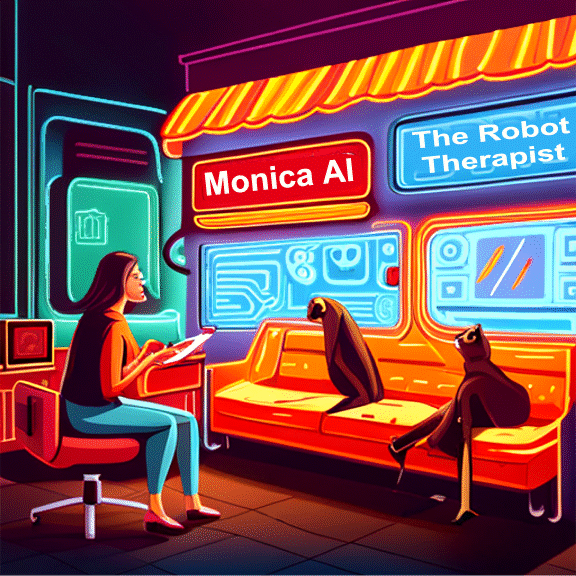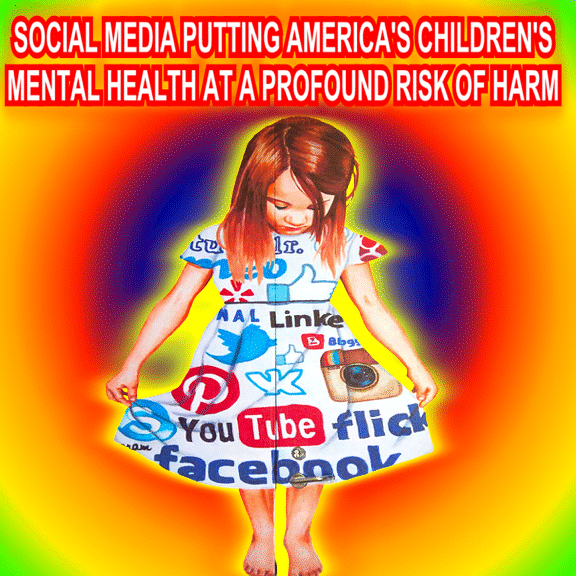THE PROS AND CONS: ARE AI BLOGS THE PLASTIC HIPPIES OF THE TECH WORLD?
As technology continues to evolve and shape our lives, it's no surprise that the tech industry has its own counterculture. But are the blogs and influencers in the AI space really embodying the values and principles they claim to champion, or are they just plastic hippies?
First, let's define our terms. "Plastic hippies" are individuals who adopt some of the ideals or aesthetics associated with the hippie counterculture of the 1960s and 1970s, but without fully embodying the deeper values and commitments of the movement. They might wear tie-dye clothing or use hippie-inspired accessories, but their commitment to broader social and political ideals may be minimal or nonexistent.
Similarly, many AI bloggers and influencers claim to be advocates for ethical AI, diversity in tech, and other lofty ideals. But how much of this is just lip service? Are they truly committed to making a positive impact on society, or are they just using these buzzwords to boost their own brand?
One common trait of plastic hippies is a superficial understanding of the culture they're trying to emulate. They might wear tie-dye clothing without understanding the history behind it, or use certain buzzwords without truly understanding their meaning. Similarly, many AI bloggers and influencers seem more concerned with sounding smart and cutting-edge than actually making a difference.
Another hallmark of plastic hippies is a lack of authenticity. They might adopt certain aspects of the culture without truly embodying its core values. Similarly, many AI bloggers and influencers seem more concerned with building their personal brand than actually making a positive impact on society.
Of course, not all AI bloggers and influencers fit this mold. There are certainly individuals who are genuinely committed to making a positive impact on society through technology. But there are also those who are more concerned with their own personal gain than anything else.
So what can we do to separate the real advocates for ethical AI from the plastic hippies? One key is to look beyond the buzzwords and marketing language. Instead of just talking about diversity in tech, for example, real advocates will take concrete steps to promote diversity and inclusion in their own work and within the industry as a whole.
Another key is to look for individuals who are willing to engage in honest, open dialogue about the challenges facing the tech industry. Real advocates will acknowledge the limitations and potential downsides of AI, and will work to address these issues in a thoughtful and responsible way.
In conclusion, while there are certainly individuals in the AI space who are genuine advocates for ethical technology and social change, there are also those who are just plastic hippies. By looking beyond the buzzwords and marketing language, we can separate the real advocates from those who are just jumping on the bandwagon for personal gain. And who knows, maybe we'll even learn a thing or two about tie-dye clothing along the way.
THE CONS: How AI Blogs Are Like Plastic Hippies
AI blogs are everywhere these days. They claim to offer insights, tips, and news on the latest developments in artificial intelligence. They promise to help you learn, grow, and innovate with AI. They sound like they are passionate about AI and its potential to change the world.
But are they really?
Or are they just plastic hippies who adopt some of the ideals or aesthetics associated with the AI culture, but without fully embodying the deeper values and commitments of the movement?
Let’s take a closer look at some of the similarities between AI blogs and plastic hippies, and see why you should be wary of them.
They wear tie-dye clothing
Plastic hippies are known for wearing tie-dye clothing, a colorful and psychedelic style that originated from the hippie movement. Tie-dye clothing is supposed to symbolize creativity, individuality, and freedom.
AI blogs are also known for wearing tie-dye clothing, metaphorically speaking. They use flashy and catchy headlines, colorful and eye-catching images, and trendy and buzzworthy keywords. They try to attract attention and stand out from the crowd.
But just like plastic hippies, AI blogs often lack substance behind their style. Their headlines are clickbait, their images are irrelevant, and their keywords are overused. They don’t offer any original or valuable content, but rather recycle the same old ideas and information.
They use hippie-inspired accessories
Plastic hippies are known for using hippie-inspired accessories, such as beads, feathers, flowers, and peace signs. These accessories are supposed to represent peace, love, harmony, and nature.
AI blogs are also known for using hippie-inspired accessories, figuratively speaking. They use quotes, anecdotes, statistics, and examples. These accessories are supposed to support their arguments, illustrate their points, and persuade their readers.
But just like plastic hippies, AI blogs often misuse or abuse their accessories. Their quotes are taken out of context, their anecdotes are fabricated, their statistics are cherry-picked, and their examples are irrelevant. They don’t use these accessories to enhance their content, but rather to manipulate their readers.
They adopt certain aspects of the hippie lifestyle
Plastic hippies are known for adopting certain aspects of the hippie lifestyle, such as vegetarianism, meditation, yoga, and alternative medicine. These aspects are supposed to reflect health, wellness, spirituality, and balance.
AI blogs are also known for adopting certain aspects of the AI lifestyle, such as coding, data science, machine learning, and deep learning. These aspects are supposed to reflect skills, knowledge, innovation, and intelligence.
But just like plastic hippies, AI blogs often adopt these aspects superficially or for fashion purposes. Their coding is sloppy, their data science is flawed, their machine learning is outdated, and their deep learning is shallow. They don’t adopt these aspects to improve their content, but rather to impress their readers.
They don’t fully embrace or understand the underlying principles
Plastic hippies are known for not fully embracing or understanding the underlying principles of the hippie movement, such as environmentalism, nonviolence, and personal freedom. They may talk about these principles, but they don’t act on them or live by them.
AI blogs are also known for not fully embracing or understanding the underlying principles of the AI movement, such as ethics, fairness, and responsibility. They may mention these principles, but they don’t follow them or apply them.
They don’t care about the social, environmental, and political implications of AI, or the potential risks and challenges it poses. They only care about the hype, the fame, and the money that AI can bring them.
Conclusion
AI blogs are like plastic hippies who adopt some of the ideals or aesthetics associated with the AI culture, but without fully embodying the deeper values and commitments of the movement.
They are not authentic or genuine, but rather shallow or insincere.
They are not helpful or informative, but rather misleading or deceptive.
They are not inspiring or innovative, but rather boring or repetitive.
So next time you come across an AI blog, don’t be fooled by its tie-dye clothing, its hippie-inspired accessories, or its aspects of the AI lifestyle. Look deeper into its content, its sources, and its principles. And ask yourself: Is this an AI blog or a plastic hippie?











